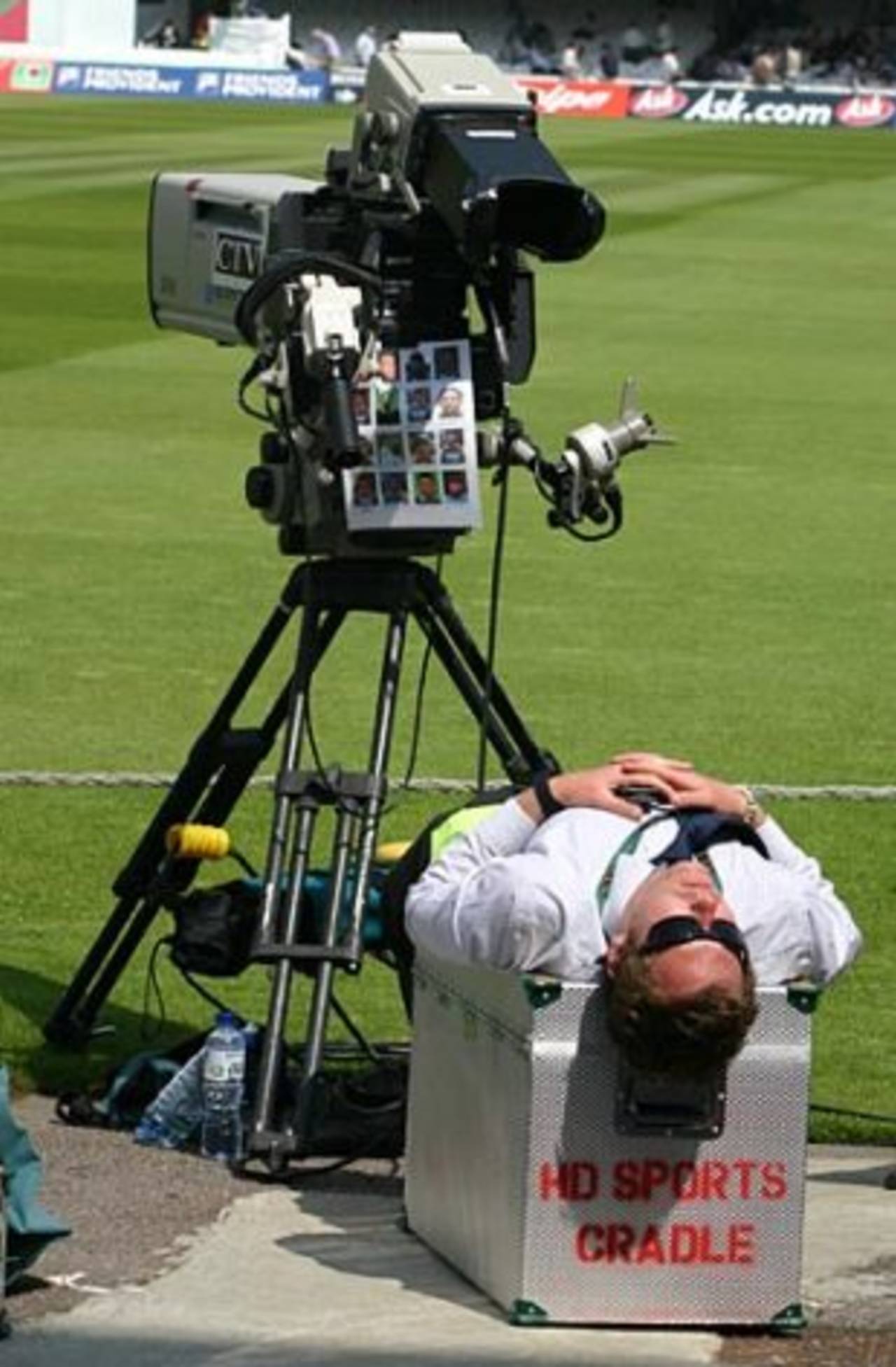There's no better example of the dysfunctional nature of international cricket administration than the Umpire Decision Review System.
In late 2009 the ICC informed us the UDRS was a crucial component in ensuring correct decisions were reached on the field. Now here we are in mid-2010 and two Test series are going to be completed without the use of the UDRS.
There are different reasons for the absence of UDRS in the Pakistan v Australia and the Sri Lanka v India series. The Pakistan board (the "home" board, in this case) said it can't afford the system, while India doesn't want it. What are the chances of ensuring correct decisions are made on the field if there appears little likelihood of reaching consensus off it?
The problem is, the heads of the boards meet as the ICC and agree on a direction for the game, and then promptly head off and act in the best interest of the individual board they represent. It's as if they gather in the huddle as a tight-knit group before the match and then instead of dispersing to perform as a cricket team, they play a game of tug-of-war.
The outgoing president of the ICC, David Morgan, recently said: "The recruitment of additional independent directors would improve corporate governance." His assertion is correct but the comment would seem less like the log in the kids' playground - hollow - if, in addition to taking steps to achieve the aim of a more independent ICC board, it was complemented by a move to also have that body as the overall ruling authority in the game.
Whether you agree with the UDRS or not - and there are plenty of scouts in each camp - surely every Test series has to be played under the same set of laws and playing conditions. Firstly on the basis that there should be justice for all players, then for the integrity of Test cricket's statistics, and finally so the officials aren't made to look like right nongs.
There's much to be sorted out with the UDRS if it's to become widely accepted as a tool to assist umpires in reaching the correct conclusion. At the moment, despite being told by the ICC that it's there to eradicate the howlers, there's far too much emphasis on scrutinising 50-50 decisions. This will probably continue to be the case as long as the right of appeal rests with the players.
I'm not personally in favour of the UDRS, but that's immaterial; it's the players and umpires who have to decide the system's method of operation and fate. However, in conjunction with efforts to fine-tune the system, I would also like to hear some parallel discussion on ways to improve the standard of umpiring. And anything that can be done to ensure the best umpires are adjudicating, which in many cases is allowing one home umpire to stand, would be a step in the right direction.
The crucial decision is finding a way to utilise the system in all matches, and if that conclusion can't be reached, it should be shelved. That's unlikely to happen.
Expecting the television-rights holders to pay for extra technology they don't actually need for their coverage is a sure way to create argument. Equally, asking some of the cash-strapped boards to foot the bill is unreasonable. If there was one ruling body, it could fund a separate operation to cover the game from an umpire's perspective from the money received for selling the television rights. This would then be run separate from the television coverage, which is the only way to ensure the integrity of the system.
Like a lot of decisions made by cricket administrators, the umpire review system wasn't fully thought through before it was implemented. Instead, a problem with umpiring was perceived and when greater use of technology was put forward as a solution, it was pounced upon as the way to soothe player- and public unrest. So far it's caused as many arguments as it has solved disputes.
A holistic approach to improving the standard of umpiring, including use of a widely accepted UDRS could help the game progress. However, at the moment reaching the right conclusion on the field is impossible while they don't have consensus off the field.
Former Australia captain Ian Chappell is now a cricket commentator and columnist
